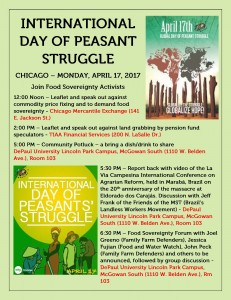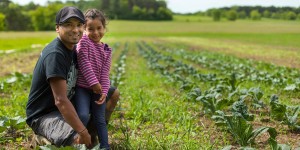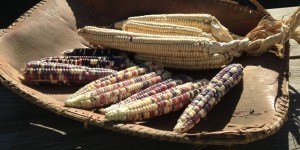By: Jim Goodman, Family Farm Defenders board member, and organic dairy/beef farmer near Wonewoc, WI Published by Common Dreams, 4/25/2017

While the current structure of NAFTA increased trade between Canada, Mexico, and the United States, farm profit margins did not increase. And now, both farmers and consumers are at risk from a trade deal that puts corporate profits above the people who grow and those who consume. (Photo: CBC)
The North American Free Trade Agreement (NAFTA) must be replaced with a transparent trade agreement that ensures farmers in all three nations—Canada, Mexico, and the United States—receive fair prices for their production, that consumers are guaranteed the right to know the content and origin of their food, and that strong environmental protections are put in place to protect the sustainability of rural communities.
While the current structure of NAFTA increased trade between Canada, Mexico, and the United States, farm profit margins did not increase. Multi-national grain traders made huge profits dumping subsidized US corn on Mexico, crushing much of Mexico’s farm economy to the point that Mexican Catholic Bishops said that NAFTA was leading to the “cultural death” of their nation. Trade agreements should promote fair trade that that supports farmers of all countries, not just the financial interests of multi-national agribusiness corporations.
To give just one recent example of how rural communities suffer from reckless trade policies that promote corporate profit at the farmers expense, on April 1st of this year, Grassland Dairy Products, the nation’s largest butter maker, informed 75 Wisconsin dairy farmers that, as of May 1, their milk would no longer be needed since, due to changes in the Canadian milk pricing system, Canadian buyers had canceled contracts to import the equivalent of one million pounds of milk per day.
Grassland management had been aware of forthcoming changes in the Canadian milk pricing system for at least several months, but Grassland gave their farmers minimal warning and left them with very few market options.
US processors, like Grassland, had been exploiting a loophole in the trade agreement that allowed them to ship ultra-filtered milk to Canadian cheese plants tariff-free since it was classified as an “ingredient” at the border. Once it arrived at the plants its classification was changed to “dairy” to legally meet Canadian cheese production standards.
Canada imposed no new taxes or tariffs on US dairy imports, they simply created a new “class” of milk that is priced at the world market price, just as the US imports were. Given this price equalization, Canadian cheese makers can now buy Canadian milk.
Canadians wants to “buy Canadian” just as Trump says we must “buy American.” Canada currently imports US dairy products worth five times the value of its dairy exports to the US. Meanwhile, US processors and producers assumed NAFTA promised them a never-ending market for their excess production—a reckless trade policy.
As Canadians note, the real problem with the US dairy industry is massive overproduction.
Because dairy US farms continue to expand and push for ever greater production, at some point (aka now) there is no room in market, the market is saturated and farmers will suffer. Processors, like Grassland however will not. They decry Canada canceling their contract, but have no problem doing the same to their farmers.
Ironically enough, Grassland has also been bankrolling the 5,000 cow factory farm expansion of Cranberry Creek Dairy in Dunn County, Wisconsin to further flood the domestic milk market. And as noted by Darin Von Ruden, President of Wisconsin Farmers Union, Grassland was cutting its milk purchases as part of the plan to build this corporate-owned 5,000-cow dairy.
Trade deals like NAFTA thrive on commodity speculation that boosts corporate profits, while bankrupting family farmers, price gouging consumers, and destroying the environment.
NAFTA should be replaced with a new Fair Trade agreement, one that ensures farmers receive prices that, at a minimum, meet their costs of production plus a living wage. Farmers, regardless of which side of the border they live on, should not be pitted against each other in a race to the bottom. They deserve to have access to their own domestic markets and to be protected from imported commodities that are unfairly priced below the cost of production (dumping). Furthermore, people of all participating countries should not be subject to trade rules that restrict their right to reject imports that do not meet their preferences on GM content; regulate pesticide use; mandate food labels; or otherwise protect local food systems.
The basic human rights of farm workers—including fair wages and safe working conditions—must be protected by trade rules that support jobs and rural development in all three countries.
Food is a human right. Food sovereignty cannot be compromised by trade agreements designed by corporate interests. All nations have a right to decide what they will eat, how it will be grown, and who will control it. No one should be forced to accept agricultural products they do not want.




